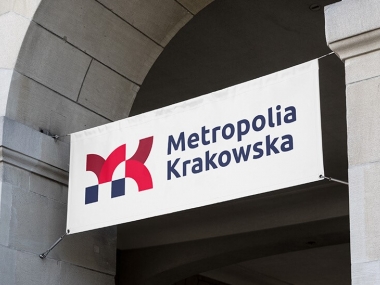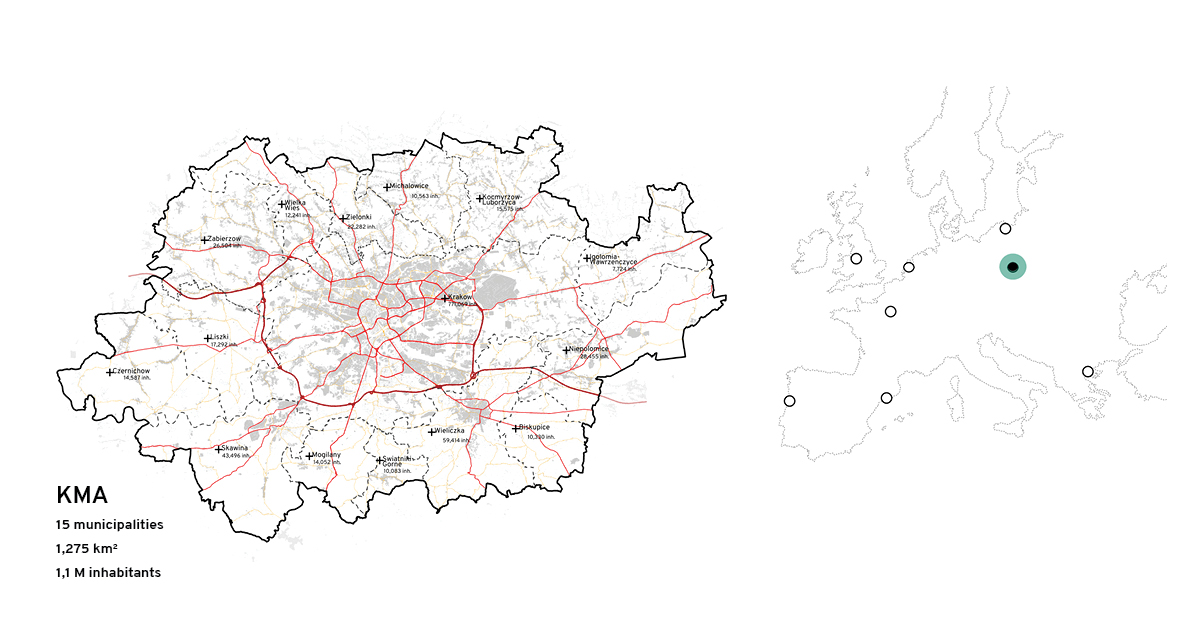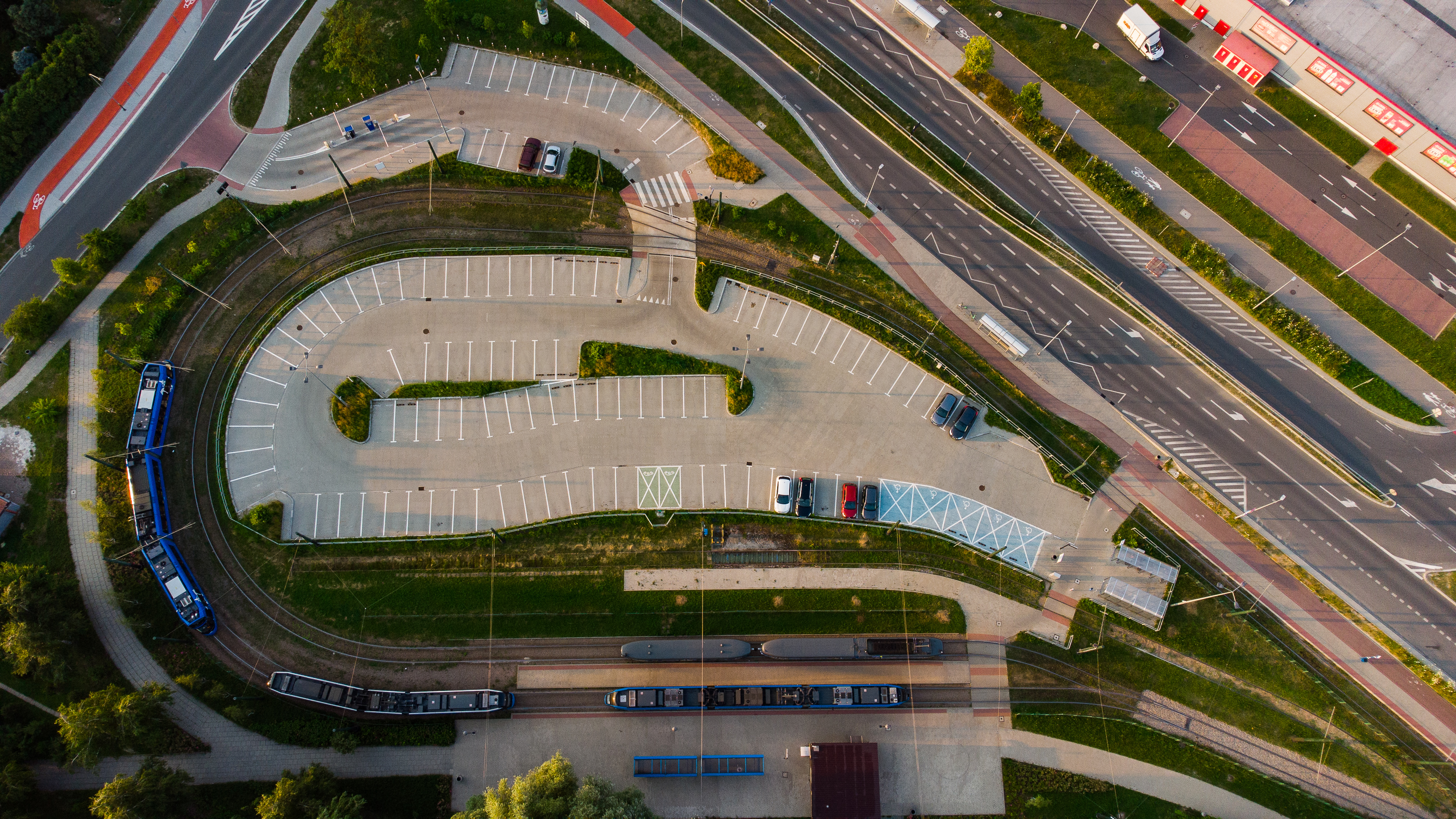Krakow Metropolis Association
Edited on
30 March 2022The Krakow Metropolis Association aims to foster cooperation for the sustainable development of the Krakow Functional Area. To do so, the entity supports transport operation and manages the implementation of Regional and European funds, while it also created the Krakow Metropolis 2030 Strategy - a document that guides the future of the metropolis.

The Krakow Metropolis Association was established on 24 June 2014. It is a non-profit organisation: it neither performs an economic activity nor belongs to the governance level. The KMA was created to implement the Integrated Territorial Investments (ITI) Strategy for the Krakow Functional Area which were identified in the 2014–2020 Regional Operational Programme for Malopolska Region. The KMA is managed in a partner-like manner, guaranteeing board members constant access to information on the current status of ITI implementation.
The Association is an organisation of fifteen local government units (The City of Krakow and 14 neighbouring municipalities - Biskupice, Czernichów, Igołomia – Wawrzeńczyce, Kocmyrzów – Luborzyca, Liszki, Michałowice, Mogilany, Niepołomice, Skawina, Świątniki Górne, Wieliczka, Wielka Wieś, Zabierzów, Zielonki) that creates and institutionalises a platform for cooperation among municipalities. It oversees an area with strong functional connections between the region’s capital city and the surrounding municipalities. The Krakow Metropolis Association is comprised of 15 municipalities and 1.1 million inhabitants. The area of this territory is 1275 km2.

Our challenge
The association’s main goal is to foster cooperation for the sustainable development of the Krakow Functional Area in order to improve its inhabitants’ quality of life. To do so, it seeks to improve the state of the environment and promote environmental awareness in order to implement the principle of sustainable development. Moreover, Krakow Metropolis is a forum where municipalities agree on common development policies and participate in constant problem-solving.
The Krakow Metropolis Association supports the planning and functioning of public transport, especially by carrying out analyses on transport, collecting data to develop traffic models and then advising the municipalities on transport activities. The KMA is the intermediate body for Integrated Territorial Investments, including transport projects. Therefore, the association plays a supporting and coordinating role in the transport planning in the Krakow Functional Area.
The challenge for the KMA in the context of ensuring a high quality of life for its inhabitants is to coordinate the activities of different municipalities to reach common metropolitan goals. Participation in various projects is an opportunity to develop and test solutions that may later spread to other municipalities.
What we do?
The Krakow Metropolitan Association developed the Krakow Metropolis 2030 Strategy, which was adopted in December 2019 and includes seven areas of cooperation: education, social services, smart governance, environment and space, mobility, leisure and culture, and economy. This document is a tool to coordinate the implementation of metropolitan development policies. Ultimately, it is planned to be applied by individual municipal councils in every municipality within the Krakow Metropolis Association. The second important challenge for the KMA is preparing a Sustainable Urban Mobility Plan for the Krakow Functional Area.
Developing these documents will be the foundation for another programming period (European Funds for 2021-27) and will provide support for all municipalities in the functional urban area as they plan and implement Krakow Metropolis Association development policies.
We try to develop methods of working together towards an effective partnership by holding meetings and workshops, such as thematic forums in development policy, air quality, mobility, public procurement, spatial management, economy, leisure time and culture. In addition, we engage in national and international partnership cooperation, such as Interreg, Urbact III, Horizon 2020 and the Regional Operational Programme for Malopolska Region (KMA4Bussiness).

Park and Ride facility in Bieżanów, in the outskirts of Krakow, aimed to reduce car traffic inside the city center
Achievements
The municipalities belonging to the KMA adopted the Plan to liquidate coal boilers in the Krakow Metropolis by 2022 on 11 October 2018. The document contains recommendations for municipal policies and the municipalities’ common position concerning the external conditions related to replacing coal boilers. According to the provisions of the Plan, by June 2019, a detailed inventory of heat sources had been carried out in all municipalities near Krakow. Every year, the KMA runs an information and educational campaign in the media with the slogan ’Let's stand together in the fight for clean air’.
Furthermore, the funds obtained from the ITI Strategy allowed the municipalities to implement projects involving economic activity zones, energy efficiency of buildings, low emissions, sustainable mobility and waste management.
An important part of the KMA’s activities is cooperation with foreign partners internationally. In this sense, the RiConnect project is an example of learning good practices from partners within the KMA’s activities and sharing our experiences.
More information about the KMA
If you want to learn more about the Krakow Metropolis Association, please visit the website: http://metropoliakrakowska.pl/
 Submitted by Mikel Berra-Sandín on
Submitted by Mikel Berra-Sandín on

